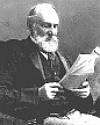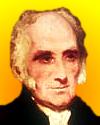 | TODAY IN SCIENCE HISTORY NEWSLETTER - 26 JUNE |
| Feature for Today |
 On 26 Jun 1999, writing of this site's second major web page was started. A few days later, it had additional descriptive pages for most of the entries, making it still one of the most extensive of the site's "Today in Science History" pages. Devoting many days to producing a single "Today" page was not sustainable, therefore a dozen years later, it is still a work in progress. And still fun! On 26 Jun 1999, writing of this site's second major web page was started. A few days later, it had additional descriptive pages for most of the entries, making it still one of the most extensive of the site's "Today in Science History" pages. Devoting many days to producing a single "Today" page was not sustainable, therefore a dozen years later, it is still a work in progress. And still fun!Take a look at the page for 26 June and take your pick from the "More" links. Alternatively, for a surprise, just click on the mouse image above, or any of the copies of the page's "More" links below: |
| Book of the Day | |
 On 26 Jun 1834, Sir Gilbert Blane died, the Scottish physician who as head of the Navy Medical board in 1834 introduced a diet including lemon juice for the British Navy's sailors, thus eliminating the loss of manpower to the sickness of scurvy. Today's Science Store pick is: Scurvy: How a Surgeon, a Mariner, and a Gentlemen Solved the Greatest Medical Mystery of the Age of Sail, by Stephen R. Bown. This author's fluent history shows that medicine of the time wasn't yet experimental and analytic, or even materialistic, but still sought spiritual or essential reasons for disease. Bown tells the story well, and he presents a vivid picture of life aboard ship during the age of sail-brutal captains; dangerous work; rotting food; filthy, overcrowded living quarters; and the ultimate horror, scurvy. After Blane's triumph, scurvy-free British seamen destroyed Napoleon's numerically superior but scurvy-ridden navy. Yet 30 years earlier, before Blane's solution, Britain may have lost its 13 American colonies when its sick sailors were overwhelmed by France's much larger (though also sick) forces. Price $15.99, save 27%, New $11.67. Also available Used from $3.14 (as of time of writing). On 26 Jun 1834, Sir Gilbert Blane died, the Scottish physician who as head of the Navy Medical board in 1834 introduced a diet including lemon juice for the British Navy's sailors, thus eliminating the loss of manpower to the sickness of scurvy. Today's Science Store pick is: Scurvy: How a Surgeon, a Mariner, and a Gentlemen Solved the Greatest Medical Mystery of the Age of Sail, by Stephen R. Bown. This author's fluent history shows that medicine of the time wasn't yet experimental and analytic, or even materialistic, but still sought spiritual or essential reasons for disease. Bown tells the story well, and he presents a vivid picture of life aboard ship during the age of sail-brutal captains; dangerous work; rotting food; filthy, overcrowded living quarters; and the ultimate horror, scurvy. After Blane's triumph, scurvy-free British seamen destroyed Napoleon's numerically superior but scurvy-ridden navy. Yet 30 years earlier, before Blane's solution, Britain may have lost its 13 American colonies when its sick sailors were overwhelmed by France's much larger (though also sick) forces. Price $15.99, save 27%, New $11.67. Also available Used from $3.14 (as of time of writing).Yesterday's pick: Traveler in a Vanished Landscape: The Life and Times of David Douglas, by William Morwood. For picks from earlier newsletters, see the Today in Science Science Store home page. | |
| Quotations for Today | |
 | "Do not imagine that mathematics is harsh and crabbed, and repulsive to common sense. It is merely the etherealisation of common sense." |
 | "And it has been sarcastically said, that there is a wide difference between a good physician and a bad one, but a small difference between a good physician and no physician at all; by which it is meant to insinuate, that the mischievous officiousness of art does commonly more than counterbalance any benefit derivable from it." |
 | "It is, I find, in zoology as it is in botany: all nature is so full, that that district produces the greatest variety which is the most examined." |
| QUIZ | |
| Before you look at today's web page, see if you can answer some of these questions about the events that happened on this day. Some of the names are very familiar. Others will likely stump you. Tickle your curiosity with these questions, then check your answers on today's web page. | |
| Births | |
 |  Born 26 Jun 1824 as William Thomson, he became an influential physicist, mathematician and engineer who has been described as a Newton of his era. At Glasgow University, Scotland, he was a professor for over half a century. His activities ranged from being the brains behind the laying of a transatlantic telephone cable, to attempting to calculate the age of the earth from its rate of cooling. In 1892, when raised to the peerage he chose his title from the name of a river, near Glasgow. Born 26 Jun 1824 as William Thomson, he became an influential physicist, mathematician and engineer who has been described as a Newton of his era. At Glasgow University, Scotland, he was a professor for over half a century. His activities ranged from being the brains behind the laying of a transatlantic telephone cable, to attempting to calculate the age of the earth from its rate of cooling. In 1892, when raised to the peerage he chose his title from the name of a river, near Glasgow. Can you name this man by his title? Can you name this man by his title? |
 |  On 26 Jun 1730, a certain French astronomer was born who was the first to compile a systematic catalog of "M objects" (1784), containing 103 star clusters, nebulae, and galaxies.He established alphanumeric names for the objects (M1, M2, etc.), which notation continues to be used in astronomy. On 26 Jun 1730, a certain French astronomer was born who was the first to compile a systematic catalog of "M objects" (1784), containing 103 star clusters, nebulae, and galaxies.He established alphanumeric names for the objects (M1, M2, etc.), which notation continues to be used in astronomy. Can you name this man? Can you name this man? |
| Deaths | |
 |  Samuel Crompton was a British inventor (1753-1827) who, in 1779 during the Industrial Revolution, created what was known as a "mule" because it was a hybrid of the ideas of two earlier designs. Samuel Crompton was a British inventor (1753-1827) who, in 1779 during the Industrial Revolution, created what was known as a "mule" because it was a hybrid of the ideas of two earlier designs.  What was his invention? What was his invention? |
 |  A French inventor (1740-1810) with his younger brother, �tienne, was one of the pioneers of ballooning. On 21 Nov 1783, their balloon carried the first two men on an untethered flight. In the span of one year after releasing their test balloon, these brothers had enabled the first manned balloon flight in the world. A French inventor (1740-1810) with his younger brother, �tienne, was one of the pioneers of ballooning. On 21 Nov 1783, their balloon carried the first two men on an untethered flight. In the span of one year after releasing their test balloon, these brothers had enabled the first manned balloon flight in the world.  Can you name this man? Can you name this man? |
| Events | |
 |  In 1721, the first inoculations in America for a certain disease were given in Boston by Dr. Zabdiel Boylston. Reverend Cotton Mather, who lived in Boston, had previously heard from a slave of the practice being used in Africa. Of all the doctors Mather had urged to try it, Zabdiel Boylston, was the first doctor courageous enough to use the procedure. In 1721, the first inoculations in America for a certain disease were given in Boston by Dr. Zabdiel Boylston. Reverend Cotton Mather, who lived in Boston, had previously heard from a slave of the practice being used in Africa. Of all the doctors Mather had urged to try it, Zabdiel Boylston, was the first doctor courageous enough to use the procedure. For what disease was this inoculation? For what disease was this inoculation? |
 |  On 26 Jun 1976, the world's tallest self-supporting structure, a tower, opened to the public. At a height of 1815 feet 5 inches it was the tallest free-standing structure in the world. The three legs and central core were built hollow to ensure flexibility in winds, using reinforced concrete and post-tensioned steel. On 26 Jun 1976, the world's tallest self-supporting structure, a tower, opened to the public. At a height of 1815 feet 5 inches it was the tallest free-standing structure in the world. The three legs and central core were built hollow to ensure flexibility in winds, using reinforced concrete and post-tensioned steel. Which tower? Which tower? |
 |  On 26 Jun 1797, Charles Newbold was issued the first US patent for a significant improvement on the plow, at a time when a similar plow of James Small had to be imported from Scotland. On 26 Jun 1797, Charles Newbold was issued the first US patent for a significant improvement on the plow, at a time when a similar plow of James Small had to be imported from Scotland. What was this significant improvement? What was this significant improvement? |
| Answers |
When you have your answers ready to all the questions above, you'll find all the information to check them, and more, on the June 26 web page of Today in Science History. Or, try this link first for just the brief answers. Fast answers for the previous newsletter for June 25: protons and neutrons grouped in onion-like layers of concentric shells; entropy; Jacques-Yves Cousteau; Peace; the same year; Mir. |
| Feedback |
 If you enjoy this newsletter, the website, or wish to offer encouragement or ideas, please send feedback by using your mail reader Reply button. If you enjoy this newsletter, the website, or wish to offer encouragement or ideas, please send feedback by using your mail reader Reply button. |
--
If you do not want to receive any more newsletters, Unsubscribe
To update your preferences and to unsubscribe visit this link

Δεν υπάρχουν σχόλια:
Δημοσίευση σχολίου